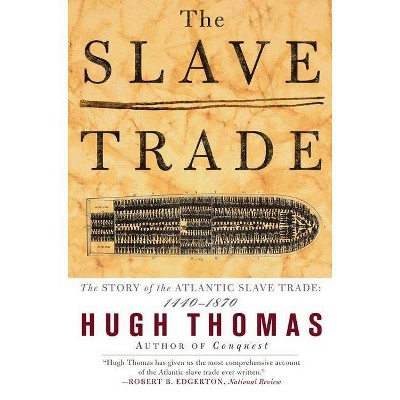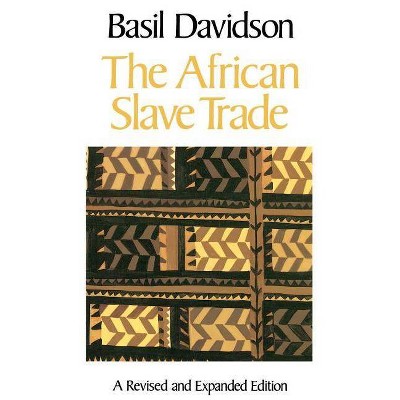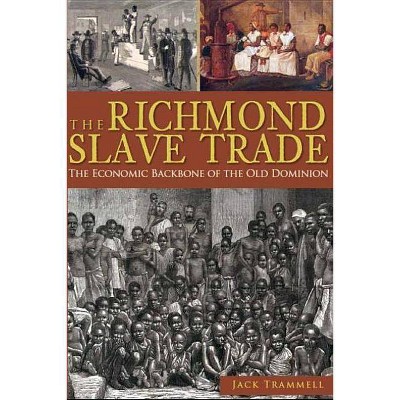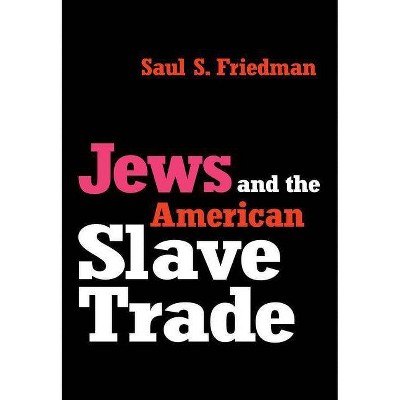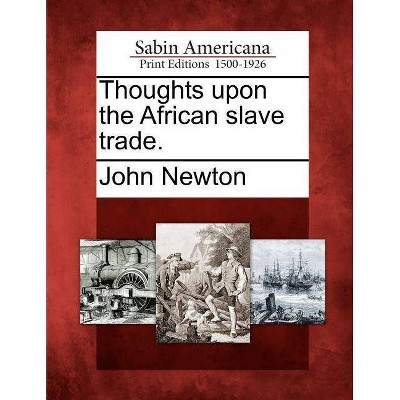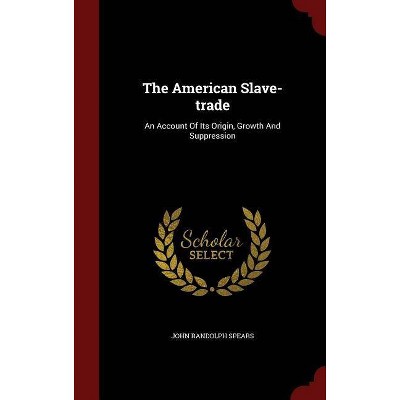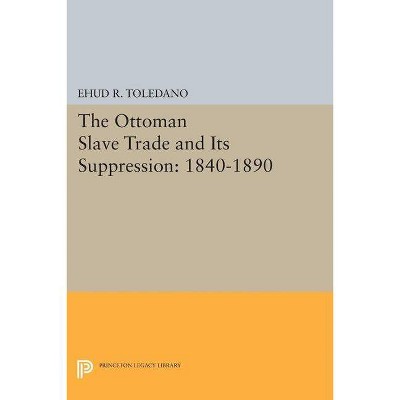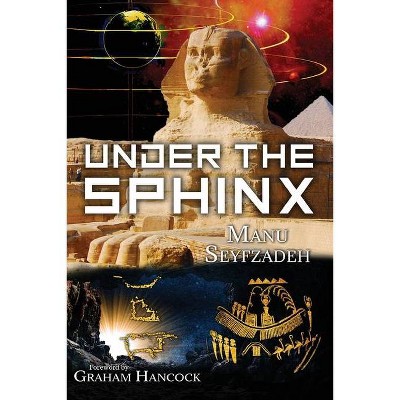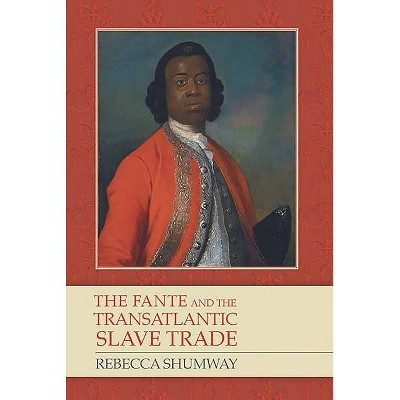Ama, a Story of the Atlantic Slave Trade - by Manu Herbstein (Paperback)
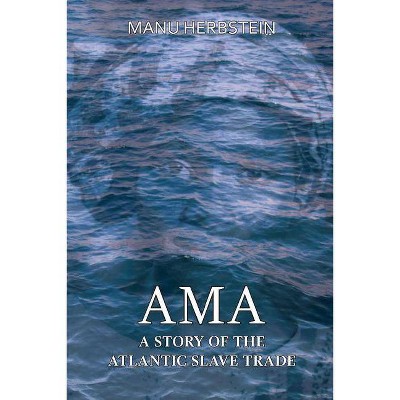
Similar Products
Products of same category from the store
AllProduct info
<p/><br></br><p><b> About the Book </b></p></br></br>"I am a human being; I am a woman; I am a black woman; I am an African. Once I was free; then I was captured and became a slave; but inside me, here and here, I am still a free woman." Manu Herbstein's historical novel won the 2002 Commonwealth Writers Prize for the Best First Book. www.ama.africatoday.com www.manuherbstein.com<p/><br></br><p><b> Book Synopsis </b></p></br></br><p>"I am a human being; I am a woman; I am a black woman; I am an African. Once I was free; then I was captured and became a slave; but inside me, I have never been a slave; inside me, here and here, I am still a free woman."</p> <p>During a period of 400 years, European slave traders ferried some 12 million enslaved Africans across the Atlantic. In the Americas, teaching a slave to read and write was a criminal offense. When the last slaves gained their freedom in Brazil, barely a thousand of them were literate. Hardly any stories of the enslaved and transported Africans have survived.</p> <p>This novel is an attempt to recreate just one of those stories. It is <em>a</em> story, just one of a possible 12 million or more.</p> <p>Lawrence Hill created another in <em>The Book of Negroes</em> (<em>Someone Knows my Name</em>, in the U.S.) and, more recently, Yaa Gyasi has done the same in the early chapters of <em>Homegoing</em>.</p> <p>As the story opens, Ama is sixteen. Distant drums announce the death of her grandfather. Her family departs to attend the funeral, leaving her alone to tend her ailing baby brother.</p> <p>It is 1775. Asante has conquered its northern neighbor and exacted an annual tribute of 500 slaves. The ruler of the Dagbon dispatches a mounted raiding party into the lands of the neighboring Bekpokpam. They capture Ama.</p> <p>That night, her lover, Itsho, leads an attack on the raiders' camp. The rescue bid fails. Sent to collect water from a stream, Ama comes across Itsho's mangled corpse. For the rest of her life she will call upon his spirit in time of need.</p> <p>In Kumase, the Asante capital, Ama is given as a gift to the Queen-mother. When the adolescent monarch, Osei Kwame, conceives a passion for her, the regents dispatch her to the coast for sale to the Dutch at Elmina Castle.</p> <p>There the governor, Pieter de Bruyn, selects her as his concubine, dressing her in the elegant clothes of his late Dutch wife and instructing the obese chaplain to teach her to read and write. De Bruyn plans to marry Ama and take her with him to Europe. He makes a last trip to the Dutch coastal outstations and returns infected with yellow fever. On his death, his successor rapes Ama and sends her back to the female dungeon.</p> <p>She comes to her senses in the canoe which takes her and other women out to the slave ship, <em>The Love of Liberty</em>. Before the ship leaves the coast of Africa, Ama instigates a slave rebellion. It fails and a brutal whipping leaves her blind in one eye.</p> <p>The ship is becalmed in mid-Atlantic. Then a fierce storm drives it into the port of Salvador, capital of Brazil.</p> <p>Ama finds herself working in the fields and the mill on a sugar estate. She is absorbed into slave society and begins to adapt, learning the l�ngua franca, Portuguese.</p> <p>Years pass. Ama has lost the sight of her good eye and is now totally blind. Clutching the cloth which is her only material link with Africa, she reminisces, dozes, falls asleep.</p> <p>"This is story telling on a grand scale," writes Tony Sim�es da Silva. "In Ama, Herbstein creates a work of literature that celebrates the resilience of human beings while denouncing the inscrutable nature of their cruelty. By focusing on the brutalization of Ama's body, and on the psychological scars of her experiences, Herbstein dramatises the collective trauma of slavery through the story of a single African woman. <em>Ama </em>echoes the views of writers, historians and philosophers who have argued that the phenomenon of slavery is inextricable from the deepest foundations of contemporary western civilization."</p> <p>The consequences of the slave trade and slavery are still with us. Brazilians of African descent remain entrenched in the lower reaches of society, enmeshed in poverty.</p><p/><br></br><p><b> Review Quotes </b></p></br></br><br>In Ama, Herbstein creates a work of literature that celebrates the resilience of human beings while denouncing the inscrutable nature of their cruelty... This is story telling on a grand scale, literally and metaphorically. The novel spans a geographical frame that reaches from Africa to America, depicting in closely observed detail also the horrors of the Middle Passage. An epic of the slave trade, Ama offers a carefully imagined examination of the failings of humanity when possessed by greed and a desire for power and influence. Herbstein is especially good at evoking the mood of the time, the mind frame of slaves and slavers, and the political and economic conditions that made slavery possible. Tony Simoes da Silva, University of Wollongong, Australia in the African Review of Books. Ama is a sweeping story of Africans caught up in the Atlantic slave trade. Crafted by Manu Herbstein, a native South African who has been a long time resident of Ghana, the book is more carefully researched than some more widely acclaimed novels dealing with Africans in the Diaspora. This book is fast-paced and moving from Ghana and the Futa Jalon to the European coastal forts and the plantations of the Americas, it captures both the horror and complexity of slave trade, which uprooted Africans from many cultures and diverse backgrounds. Christopher R. Decorse, Syracuse University, International Journal of African Historical Studies By casting a female protagonist, Herbstein invites the reader to 'see' the particular nature of women's oppression. Ama's experience shows that gender, race and class are not distinct realms of experience, existing in isolation from each other. Rather they come into existence in and through relation to each other as overlapping discourses and interlocking systems that determine the degree to which male domination and privilege can be asserted. Ama's journey allows us to read the complexities and contradictions of the time, where all classes, free and slave, women and men, black, white and mulatto are in some way interrelated in a dynamic that results from relations of power. Shereen Essof, The Voice of the Turtle An engrossing and powerful story of a woman of courage, intelligence, and strength, Ama is not for children, for the squeamish, or for those who demand political correctness in their history. Ama's author tries to depict the Atlantic slave trade as it was, making no concession to modern revisionism; readers will look in vain for stereotypes in Ama's pages. Herbstein does an admirable job of bringing a strange, harsh world to life. India Edghill, The Historical Novels Review If I have to decide to save three books from a sinking ship, Ama would unquestionably be one of them...The storyline is beautifully written and well plotted, taking you in a journey inside the African world, where you will be stunned by the untold stories about its culture and history, and you will be moved by the fateful events that Ama had experienced. Ali Hammoud, The Cube, Lebanon Nandzi, alias Ama alias Pamela, who lives in a Ghanaian hamlet, is affianced as a child to a man several decades older than her; she is barely into the teens when, abducted by a rival tribe Dagomba, is raped and sold off to the Asante tribe, which in turn sells her off to the Dutch. Thus begins a saga that matches Alex Haley's Roots in its sweep and outmatches it in irony and poignancy. Unlike Roots' male protagonist, Kunta Kinte (kidnapped in Africa, ends up in USA), Ama (kidnapped in Africa, ends up in Brazil) never gives up her fight for dignity. This well-researched novel focuses on how Africans enslaved, exploited and sold off fellow Africans to westerners. Ama's life becomes the metaphor for Africa's degradation. There is a soul-sapping scene wherein enslaved women sing this dirge: "We, too, have died and yet we live still/We are as walking corpses/Hear our voice/Hear our lamentation ..." The Tribune, India<br>
Price History
Price Archive shows prices from various stores, lets you see history and find the cheapest. There is no actual sale on the website. For all support, inquiry and suggestion messages communication@pricearchive.us
